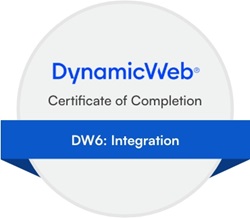Hello forum,
- I have been trying to construct a shared query, that should return products without a specific translation, but I haven't successed. Default language is 'Danish' and I want to find all products without/missing translation to 'Swedish'.
I have been playing around with fields like 'Language ID (System.String)' and 'Products translated to (System.String[])' in my shared query, but I'm not getting the result I'm looking for.
Do you have any hints or how-to's would it be much appriciated.
Br. Michael Knudsen













